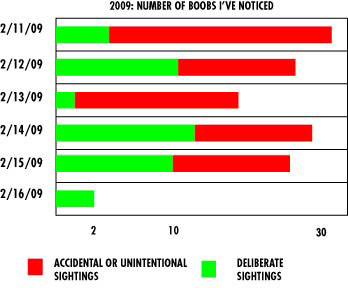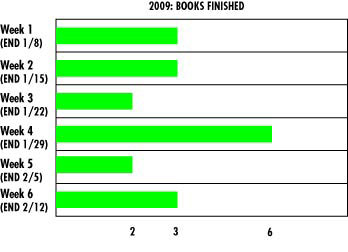Dick Meyer’s sad, little article about the impending death of newspapers fails to pinpoint several root causes. The end of stand-alone book review sections may strike a symbolic blow to those, like Meyer, who remain blissfully terrified of the present. But if the coverage still remains available and accessible, how then can this be a blow to literacy, wisdom, and intellectual agility? The coverage, as has been repeatedly documented, isn’t going away. It’s just going online and finding its way into other sections of the print newspaper. Meyer’s uninformed position is that, because the Washington Post books coverage is shifting from Book World to the daily section, somehow, the books coverage itself will become more primitive, less wise, and otherwise worse than it is presently.
This is a remarkable insult to the hard-working team at the Washington Post. Does Michael Dirda become a lesser critic because you read his work on a screen instead of a piece of paper? No, he doesn’t. So Meyer’s position isn’t snobbish. It’s idiotic. It doesn’t concern itself with the reviews at all, but with the medium. It’s the position of a doddering coot who isn’t “against the grain” at all, but very much for the grain. Meyer wants to keep things the way they once were without accounting for the way they are now. By Meyer’s own standards, his own article must be inferior because it is appearing on a website. By Meyer’s own standards, his status is very low indeed. Lower than Smeagol crawling through the caves in search of the ring.
Let’s examine Meyer’s paralogia here. His position is that one must protest the demise of print book sections because “what lives in books” must be preserved. This assumes that “what lives in books” cannot live online. Let’s imagine that the Internet never came into existence. Few critics saw their collected book reviews bound into books. And those who did, like the late great critic John Leonard, have seen their collections fall out of print. A daily newspaper, assuming that it was even read by a subscriber, would be replaced by another. The newspaper piece that a writer would slave over for hours would often find its way to the bottom of a birdcage.
Now if you wanted to hunt down a specific piece, you had to go to the library, roll up your sleeves, stare at a bleary strip of microfilm (assuming the specific roll was there and assuming that the people who OCRed the newspaper actually went to the trouble of scanning the text correctly and assuming that the microfilm machine’s focus wasn’t off or that the machine wasn’t otherwise malfunctioning), and hope for the best when you clinked your dimes into this appealing yet temperamental contraption. It was, as any curiosity seeker fumbling about in libraries during those days knows very well, a colossal pain in the ass.
The Internet, by contrast, permits you to find a specific piece without such technological hangups and serious investments of time. That forgotten newspaper piece? Instantly locatable, assuming that the newspaper has had the good sense to preserve an online archive. It can be sufficiently argued that the Internet can produce greater attention to a books section. Suddenly, a midsized metropolitan newspaper has a national audience greater than its analog local base. A talented writer, seemingly working in the middle of nowhere, suddenly becomes thrust into an unanticipated spotlight. The books section lives, so long as the newspaper lives. (And that is the real problem that none of the print partisans are willing to confront or concoct solutions for. Can an online-only outlet be profitable? Can book review coverage be preserved or even be augmented through online coverage?)
Given these developments, newspaper writers are possibly in a greater position to expose their readerships to “a wide variety of writers.” Except that, more often than not, newspapers are more interested in writing to a “general audience,” instead of presenting the “general audience” with “a wide variety of writers.” Small wonder then that newspapers are relying more on their brand names instead of their content, and book enthusiasts have turned to the Internet for alternative options. It is not that books are being devalued by readers. It is that audiences are being devalued by newspapers. When you view your audience as “general” and you limit your spectrum, the audience is smart enough to know better. This regrettable editorial mentality has likewise made its way towards the more “distinguished” online ventures hoping to pick up the slack. Consider the Daily Beast’s recent profile of Colson Whitehead. Here was an opportunity to interview an author shifting in a new direction, a moment to engage a talented author and get people more interested in his work with lively and thoughtful questions. But the questions, which include such dull zingers as “So how does it feel to come back to Sag Harbor now that you’re older?” and “Are you a barbecuer now, like Benji’s dad was?,” are no different from a vapid puff piece. They insult the general audience and insult the practice of journalism.
If, as Meyer suggests, “huge profiteering and wildly promiscuous marketing” is a “cruel virtue” for books, it is not far crueler to sustain an atmosphere in which a talent like Whitehead must be subjected to these meaningless questions? And if Meyer truly wishes to offer a culture in which “oddballs and dissenters” are allowed to flourish, why then is he so smitten with capitalism and celebrity?
This mad scrambling has nothing to do with the format it appears in. Antediluvian types, such as Meyer and editor Eric Chinski in this lengthy conversation, remain terrified of today’s shifting notions of cultural authority, but the underlying issues have very little to do with the outlet or the medium it appears in. It’s the content, stupid. And the sooner that we all recognize this, get past our own fears and prejudices, and create a few viable revenue models that benefit all and provide a sustainable room for the “oddballs and dissenters,” the better books coverage will be in the long run.



